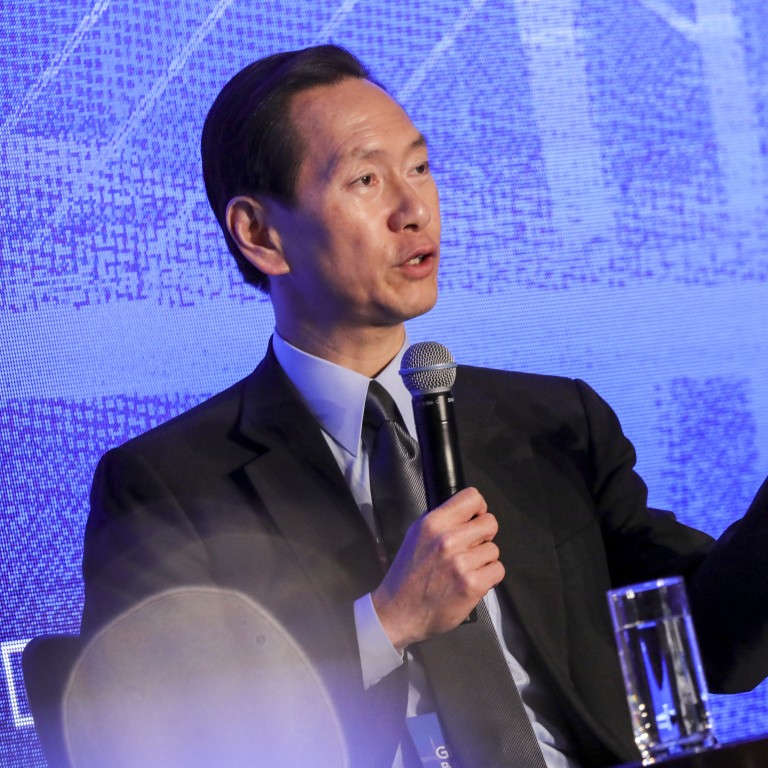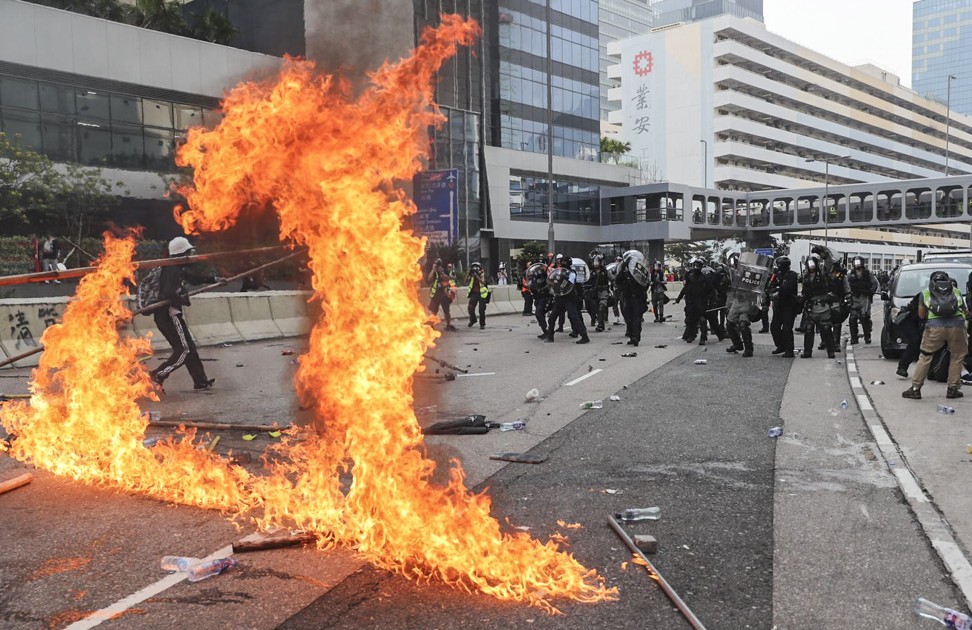
Hong Kong emergency powers ‘would be used in a measured way’ to quell anti-government unrest, says city leader’s adviser Bernard Chan
- But top adviser to Carrie Lam says city is nowhere near needing such drastic measures
- Emergency Regulations Ordinance would grant the government power to seize property or shut down the internet
The use of any emergency powers at the government’s disposal to end Hong Kong’s escalating protest crisis would have to come in a measured way rather than a blanket crackdown, to protect the city’s status as an international financial centre, a top adviser to the city’s embattled leader said on Wednesday.
However, Executive Council convenor Bernard Chan said that while Chief Executive Carrie Lam Cheng Yuet-ngor’s administration had the option of using the Emergency Regulations Ordinance, the city was nowhere near requiring such a move, which would grant the power to seize property or shut down the internet.
Chan was speaking at the latest China Conference organised by the South China Morning Post, this time focusing on Beijing’s ambitious Greater Bay Area (GBA) plan in the context of Hong Kong’s advantages and challenges.
The GBA national plan is to turn Hong Kong, Macau and nine other Guangdong cities into a financial and technological powerhouse to rival Silicon Valley by 2035, with the two special administrative regions playing a leading role on the strength of the unique “one country, two systems” policy under which they are governed.
I know in some countries they decide to shut down the whole internet, that’s crazy, that would be so unhelpful for all the businesspeople in Hong Kong
The ordinance, last used during the 1967 leftist riots, grants the chief executive authority to “make any regulations whatsoever which he [or she] may consider desirable in the public interest” if it is considered a matter of “emergency or public danger”.
“I am sure whatever decision we make, we do make sure that we can still continue to maintain Hong Kong’s status as a financial centre,” Chan said.
But he cautioned that speculative news reports were unnecessarily inciting fear, and suggested the government would not turn the city upside down overnight.
“I know in some countries they decide to shut down the whole internet, that’s crazy, that would be so unhelpful for all the businesspeople in Hong Kong,” Chan said. “I think whatever decision we make, it has to be very measured, and equitable, and lawful.”
Bringing up a talk earlier this month that Hong Kong and Macau Affairs Office director Zhang Xiaoming gave to 500 political and business leaders from the city in Shenzhen, Chan said Beijing’s message was very clear that it was up to Hong Kong to end the crisis using any means at its disposal.
Although Zhang warned Beijing could take the ultimate step of deploying the People’s Liberation Army and enacting national laws in Hong Kong if the crisis continued to spiral out of control, Chan suggested this was not foremost in the minds of China’s leaders.
When you introduce laws we are not familiar with, there may be an exodus of foreign nationals and the withdrawal of investment
The better and more immediate way out, Chan said, was for the government to take the lead in building dialogue and the chief executive was set to initiate this in her October policy address.
On the same panel at the conference, American Chamber of Commerce president Tara Joseph was optimistic that this was not the end of the road for Hong Kong.
While she stressed that the free flow of information and capital, as well as the rule of law, were key for international investors to remain in Hong Kong, Joseph noted that no large US company had fled the city yet over the escalating crisis.
Leading businessman and Lan Kwai Fong Group chairman Allan Zeman warned on the sidelines of the conference that commerce in the city would take a hit if emergency laws were invoked, but he did not see a problem with the government holding them as an option.
“It was just Carrie Lam’s chance to really remind people because the violence was getting ... last Sunday was really terrible in Hong Kong – really, really bad,” he said.
Liberal Party leader and pro-business lawmaker Felix Chung Kwok-pan was more blunt in warning separately against invoking emergency powers.
“When you introduce laws we are not familiar with, there may be an exodus of foreign nationals and the withdrawal of investment,” Chung told a radio show.
The impact of such a move on Hong Kong could be worse than the ongoing clashes between police and protesters, he suggested.
“When you only use suppressive methods to handle something, it doesn’t solve the problem at all,” he said.


